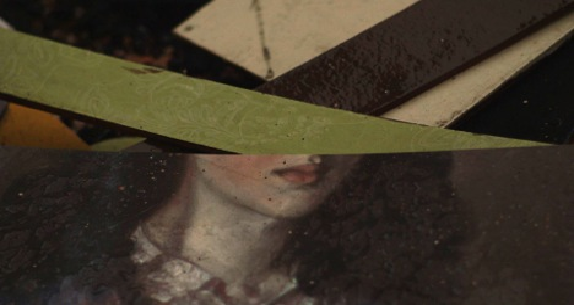The concept and figure of Nature is invoked to criminalize sexual orientation and gender identity for being "against nature" in Article 534 of Lebanon’s Penal code, as well as in more than 50 countries across the world. Using this arbitrary concept that divides what is “natural” and “unnatural,” politicians, judges or religious figures ascribe to Nature as an undeniable source of authority, enforcing this division with the full coercive power of the state. However, recent legal cases (in 2009 and 2014) documented by the Legal Agenda in Lebanon, demonstrate how judges can interpret the concept of Nature in such a way as to dismiss and refute accusations of sodomy or other “unnatural behaviors”.
Based on these precedents, Council has proposed The Manufacturing of Rights, a pluridisciplinary inquiry that unfolds a series of new arguments to show how the concept of Nature is imbued with multiple, contradictory meanings used to regulate societal norms. Over the course of this three-day colloquium, participants are invited to share legal cases, historical and speculative, that refer to Nature – in the form of short speeches, audio pieces and films.
The Manufacturing of Rights inquiry and colloquium will result in an online data platform, conceived as a cultural and legal tool, that seeks to equip judges and lawmakers with cultural understandings for reinterpreting such penal statutes. (to be published in 2015).
In the frame of The Manufacturing of Rights, Council commissioned a new film by Carlos Motta, Deseos / رغبات , co-written with Maya Mikdashi, and a co-authored intervention by Marwa Arsanios and Lawrence Abu Hamdan, commissioned and produced by Council. The event is mediated by Lawrence Abu Hamdan’s speaker system, entitled Audio Infrastructure for Objective Proximity.
A booklet with all cases (English/Arabic) will be distributed to the public. The digital version is available here. All sessions are public and will be streamed live on Ashkal Alwan's youtube channel.
THURSDAY, MAY 14
5.30pm | public: Forewords
Words by Christine Tohme (Ashkal Alwan), Bente Scheller (Heinrich Böll Stiftung), Sandra Terdjman (Council), David Kim and Nizar Saghieh (Legal Agenda).
Case #7: A Tale of Two Judgments: Between Empathy and Contempt, video-letter by Arvind Narrain
Case #12: The Petitioner’s Case, lecture by Eric Gitari
Discussion
8pm | public:Screening
Introduction by Maya Mikdashi and Carlos Motta
Case #5: Deseos / رغبات, screening premiere of Carlos Motta’s film
Discussion
FRIDAY, MAY 15
2pm | public: 1st sequence
Moderation: Grégory Castéra
Case #4: Dahdah verdict, co-intervention by Lawrence Abu Hamdan & Marwa Arsanios
Case #8: Another Earth, reading by Emilie Notéris
Case #3: The Case for Di Aping, lecture by Adrian Lahoud
Discussion
4pm | public: 2nd sequence
Moderation: Maya Mikdashi
Case #2: Indecencies, lecture by Nayla Geagea
Case #1, Chlordécone, video-letter by Vanessa Agard-Jones
Case #11, The Intermorphs, lecture by Ashkan Sepahvand
Video Case, Toxic, screening of Pauline Boudry and Renate Lorenz’s video, (2012, 26min)
Discussion
SATURDAY, MAY 16
11am | public: 3rd sequence
Moderation: Carlos Motta
Case #6, The Dekwaneh Case, lecture by Karim Nammour
Case #10, Unnatural Bodies, Desires, and Devotions, lecture by Zeb Tortorici
Case #9, God, Nature, and the Nature of God, lecture by Linn Tonstad
Discussion
1.30 – 3.30pm | by registration: Workshop: collective writing of the data platform – Moderation: Youmna Makhlouf, David Kim, Sandra Terdjman and Grégory Castéra
4pm | public: Conclusions
Workshop summary by Youmna Makhlouf and David Kim
Concluding remarks by Council
Participants include Lawrence Abu Hamdan (artist, Lebanon), Vanessa Agard-Jones (ethnographer and gender scholar, US), Marwa Arsanios (artist, Lebanon), Pauline Boudry and Renate Lorenz (artists, Germany/Switzerland), Grégory Castéra (curator, France), Emma McCormick-Goodhart (curatorial assistant, France), Nayla Geagea (lawyer, Lebanon), Eric Gitari (activist, Kenya), David Kim (curator and legal researcher, US), Adrian Lahoud (architect, UK), Youmna Makhlouf (lawyer, Lebanon), Maya Mikdashi (legal anthropologist, Lebanon/US), Carlos Motta (artist, Colombia), Karim Nammour (legal researcher, Lebanon), Arvind Narrain (lawyer, India), Émilie Notéris (writer, France), Nizar Saghieh (lawyer, Lebanon), Ashkan Sepahvand (writer, Germany), Sandra Terdjman (curator, France), Linn Tonstad (theologian, US) and Zeb Tortorici (historian, US).
Founded in 2013 by Grégory Castéra and Sandra Terdjman, Council fosters the composition of knowledges—artistic, scientific, and social—in aim to propose new political representations. Council unites pluridisciplinary groups of researchers around inquiries related to societal issues, which are developed over several years. Council equally favors the production of works and awards an annual fellowship to cultural actors in support of their social engagement. The Manufacturing of Rights is Council’s second inquiry.
Founded by Nizar Saghieh, The Legal Agenda is a critical and multidisciplinary non-governmental organization, based in Lebanon. It monitors and analyzes law and public policy in Lebanon, specifically, and the Arab region, generally. The Legal Agenda publishes a quarterly magazine, organizes regional conferences, commissions studies, and hosts panel and open discussions.
The Manufacturing of Rights is supported by Heinrich Böll Foundation, DiCREAM, Institut Français de Beyrouth, Foundation for Arts Initiatives.









